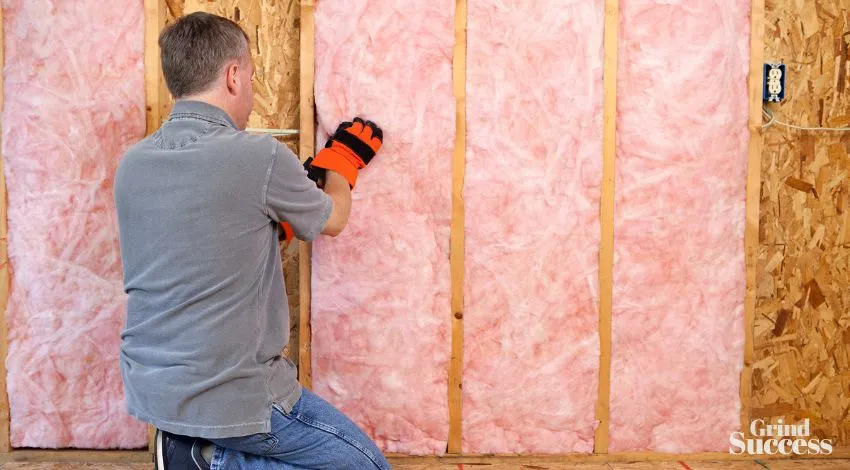Tips in Starting an Insulation Business in Texas

Businesses that provide insulation services are in high demand due to the rising cost of energy. Texas is an ideal location for this type of business because it has mild winters and hot summers, making insulation a necessity year-round.
Starting an insulation business in Texas can be a lucrative opportunity, as long as you understand the local market and have a sound plan for success.
Overview of the Benefits of Starting an Insulation Business
There are many benefits to starting an insulation business. For starters, setting up a business of this type requires relatively low startup costs, and you don’t need to invest in expensive equipment to get started.
Additionally, insulation is a necessary service that will always be in demand, which means you can count on consistent income. Finally, there are plenty of resources available to help new businesses thrive and grow in Texas, from financial assistance programs to networking tools.
Reasons Why Texas is a Good Place to Start an Insulation Business
Texas is uniquely positioned to offer entrepreneurs a great opportunity in insulation services. The state is home to several large cities, including Dallas and Houston.
These cities have experienced rapid population growth in recent years, leading to an increase in demand for insulation services. As a result, insulation businesses have the potential to thrive in Texas.
Additionally, Texas is renowned for its competitive business climate, offering entrepreneurs low taxes and regulations that make it easier to operate a business.
Researching the Market
Before starting an insulation business in Texas, you need to do your due diligence and research the local market. This will help you get a better understanding of the demand for insulation services in the area, as well as the competition.
1. Assessing Demand for Insulation
The first step is to assess the demand for insulation services in Texas. Look at current trends and population growth projections to determine if there is a need for your services in the state.
Additionally, research the cost of energy in Texas and how it affects people’s decisions when it comes to insulation. When you have a better understanding of the demand for insulation services, you can start to develop a plan for success.
2. Understanding Your Competitors
It’s important to understand who your competitors are and what they offer. Research their products, pricing, and customer service methods to get an idea of how you can differentiate yourself from them.
Additionally, take note of any local businesses that offer insulation services and consider how you can partner with them to expand your reach. Taking the time to understand the competition will help you create a unique and successful insulation business.
3. Analyzing the Local Climate
Finally, you need to analyze the local climate in Texas. Since insulation is a necessity year-round in this state, it’s important to understand how weather patterns may affect your business.
Pay close attention to temperature fluctuations and average humidity levels throughout the year so that you can anticipate any potential issues and adjust your services accordingly. For example, you may need to offer additional services during periods of extreme heat or cold.
Crafting a Business Plan
Once you’ve done your research and gathered the necessary information, it’s time to develop a business plan. This document will serve as your roadmap for success and should include details such as your goals, target customers, and startup costs.
1. Setting Goals and Objectives
First, you need to set clear goals and objectives for your business. This will help you focus on achieving success in the Texas insulation market.
Think about what you want to accomplish in the short term, such as establishing a customer base or increasing overall sales by X%, as well as long-term goals like expanding into new markets or launching additional services.
2. Identifying Your Target Customers
Once you have your goals in place, it’s time to identify your target customers. Consider who is most likely to need insulation services in Texas and how you can reach them.
Reach out to potential customers through online channels such as social media or email campaigns, as well as traditional methods like print advertising. As you build your customer base, keep track of which strategies are working best so you can adjust accordingly.
3. Estimating Startup Costs and Financing Options
The final step in crafting your business plan is to estimate your startup costs and explore financing options. Calculate the cost of any equipment or materials you’ll need to get started, as well as operational expenses such as insurance and payroll.
Additionally, research grants and loans can help you cover the cost of starting your business. These financial resources will help you get your insulation business up and running in Texas.
Starting the Business
Once you have a comprehensive business plan in place, it’s time to start your insulation company.
1. Forming Legal Entities
Before you can begin operations, you must form a business legal entity. This will determine how you’re taxed and protect your personal assets in the event of a lawsuit.
Generally, most businesses are either sole proprietorships, partnerships, corporations, or limited liability companies (LLCs). Research the different types of legal entities to decide which one is right for your business. If you’re unsure, consult with a lawyer to get advice.
2. Securing Necessary Licenses and Permits
You also need to make sure you have the necessary licenses and permits before you can begin offering insulation services in Texas. Depending on your location, this could include a business license, contractor license, or other permits.
You may need to take a certification course or pass a test to secure specific licenses, so make sure you understand the requirements before you apply. Many state and local governments provide information about the necessary permits on their websites.
3. Creating a Brand for Your Business
This can be one of the most exciting steps in launching your insulation business. You’ll need to design a logo and create other marketing materials that capture people’s attention and make them want to choose your business.
Investing in professional branding services can be a great way to ensure that you have an eye-catching, memorable brand for your business.
A piece of advice: don’t skimp on this step, as your branding sets the tone for how customers view your business.
We truly care for your business, and that’s why we’re going to recommend a few branding tips that might come in handy for you as you create a unique brand identity:
4. Finding Suppliers and Setting Prices
You’ll need to find suppliers for the insulation materials you need and set prices that will make your business profitable. Research local suppliers and compare their prices to determine which ones offer the best value.
You should also talk with other insulation companies in the area to get an idea of what prices are competitive and attractive to customers. For example, iFoam in Dickinson Texas offers spray foam insulation at a competitive price, which means you can get the insulation service that you need on a budget.
Most of the time, it’s best to start out with a lower price point and gradually raise your prices as you gain more customers.
Growing Your Insulation Business
Once you’ve established a solid foundation for your insulation business, it’s time to start growing. You can look into these different strategies to help you increase sales and generate more leads.
1. Investing in Quality Equipment
You need to have the right equipment if you’re going to offer high-quality insulation services. Invest in quality tools and materials that will make your job easier and help you provide a better service for your customers.
Although it may seem like an expensive initial investment, having the right equipment will ultimately save you time and money in the long run.
2. Utilizing Digital Marketing Strategies
Digital marketing is essential for a successful insulation business. Use social media to connect with potential customers, create content to showcase your services, and invest in search engine optimization (SEO) to help people find your business.
3. Building Strategic Partnerships
Partnering with local businesses can be a great way to increase visibility and attract new customers. Look for companies that offer complementary services, such as air conditioning repair or window installation, and form partnerships with them to cross-promote each other’s businesses.
Be very careful when selecting partners and vet them thoroughly to ensure they’re a good fit.
4. Investing in Professional Development
Investing in professional development is another great way to stay up-to-date on the latest insulation trends, stay ahead of the competition, and improve your services. Take classes, attend courses, or even hire a mentor to help you learn as much as you can about the industry.
After all, the more knowledge you have, the better equipped you’ll be to provide your customers with the best insulation services possible.
5. Expanding Your Service Offering
Finally, as you gain more experience and knowledge, you can start expanding your service offering. Consider branching out into energy audits to help homeowners save on their energy bills.
Look into installing green insulation or soundproofing materials for commercial properties or even offer custom services such as home theater insulation installation. The possibilities are endless!
Conclusion
You’ve reached the end of this guide to starting an insulation business. However, let’s recap the key points that you need to consider.
1. Recap of Starting an Insulation Business
Before launching your insulation business, you need to do research and plan ahead. You’ll need to register your business, create a marketing strategy, find suppliers, establish prices, invest in quality equipment, utilize digital marketing strategies, build strategic partnerships and invest in professional development.
2. Take Action Now
It’s time to start your insulation business now that you are aware of the fundamentals. Make sure you have all the knowledge you need to get started by using this guide as a starting point and conducting your own research. You may create a prosperous insulation business and establish yourself as a leader in the field with perseverance and hard effort.
3. Final Thoughts on Making the Decision to Open Up Shop in Texas
The insulation industry is growing and it’s a great time to open up shop in Texas. You might experience a few growing pains as you get your business off the ground, but with the right strategy and determination, you can become a successful insulation contractor.
Who knows, you might even become the go-to insulation provider in your city! The decision is yours. Good luck and happy insulating!
Frequently Asked Questions (FAQS)
Q: What kind of license do I need to start an insulation business in Texas?
You will need a certificate of registration from the Texas Department of Licensing and Regulation. This will require you to complete an application, pay a fee and provide proof that you have insurance coverage for your business.
Q: How much does it cost to start an insulation business in Texas?
The cost of starting an insulation business in Texas can vary depending on the size and scope of your company. Be sure to factor in startup costs such as registration fees, equipment costs, insurance premiums, and marketing expenses. Additionally, it’s important to have enough working capital to cover operational costs until you start to generate a profit.
Q: Do I need to hire employees for my insulation business?
Hiring employees is not necessary, but it can be beneficial in the long run. Employees can help you with tasks such as installation and marketing so that you can focus on growing your business. However, if you decide to hire employees, you will need to make sure you follow all applicable laws and regulations.






